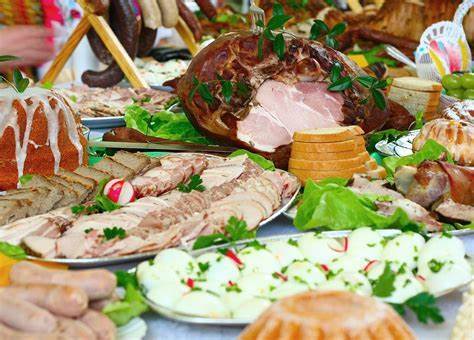Easter, is a Christian festival and cultural festival and holiday commemorating the resurrection of Jesus from the dead, described in the New Testament as having occurred on the third day of his burial following his crucifixion by the Romans at Calvary circa 30 A.D. Easter Sunday in 2023 is Sunday, April 9.
Passover is a Jewish holiday that celebrates the Biblical story of the Israelites’ escape from slavery in Egypt. Passover occurs in the spring, usually in April or March, around the same time as Easter. It’s a major religious holiday in Judaism that lasts for eight days. There are a number of important Passover traditions observed by practicing Jews during this time, including not eating leavened bread and hosting or attending Passover seders. Passover begins the evening of April 5th and ends April 13th in 2023.
Eid al-Fitr, also known as “festival of breaking of the fast”, is an important religious holiday celebrated by Muslims worldwide that marks the end of Ramadan. The holiday celebrates the conclusion of the 29 or 30 days of dawn-to-sunset fasting during the entire month of Ramadan. Eid al-Fitr begins the evening of Friday, April 21, 2023 and ends the evening of Saturday, April 22, 2023.



I was raised in a Christian environment in Washington, D.C. As a child I didn’t know anyone who wasn’t Christian. My father was Catholic and my mother was a committed Episcopalian… traditions we used to call the churches of “smells and bells” for the incense and chimes. As a child, for Easter Sunday I always had a new Spring outfit and couldn’t wait for church to be over so we could go roll Easter eggs and fill our Easter baskets with lots of candy.
My husband, our two children and I moved to a cul de sac in the neighborhood of Hobbits Glen in the Village of Harpers Choice, in 1985. As my children grew they learned and experienced varied cultures, foods, holidays and traditions without leaving our street; unlike my upbringing.
My next-door neighbors were Jewish and it was the first time I really understood the celebrations in that faith. For a while each of my children wanted to convert to Judaism after they attended large Bar Mitzvah celebrations; that is until they understood that a Bar or Bat Mitzvah was more than just a party but required extensive religious training including learning Hebrew. It was sort of like my own confirmation training, without the need to learn a new language. The Passover celebrations were extended family gatherings much like those I was accustomed to with more of a religious focus and a lot less chocolate.
Next to that family was a family from the Kashmir region in Pakistan. Each of the parents was multi-lingual and the food was nothing like anything my children had otherwise experienced. My son, in particular, loved to go to their house for their Eid celebrations. I don’t know how much he learned about the religion but he certainly LOVED the food. After one particular time he laid waste to their table of food the mother told my son he would no longer be able to eat up all their food unless he learned to speak at least one word of Urdu each time he came to eat. He would proudly run home stuffed with food and proud of the words he had learned.
How fortunate my children have been to live in such a welcoming community where families from such varied backgrounds could live in harmony with children running in and out of neighboring homes experiencing and recognizing such varying religions and cultures.
When were you first exposed to religions and cultures different from the religion and/or culture in which you were raised?
